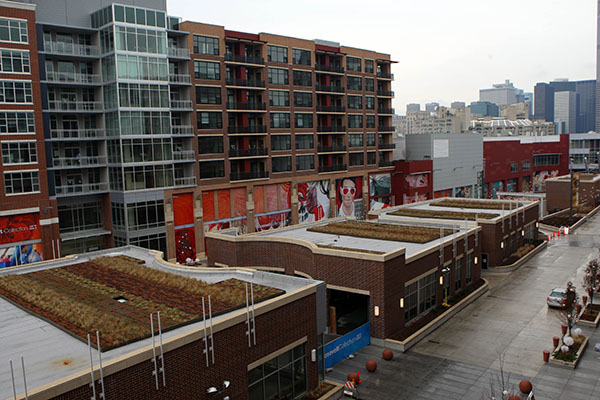
Photo: Alex Garcia / Chicago Tribune
A mixed-use building in South Loop.
Q. Dennis, we own a 2 BD/2 BA, condo in a loft building in the South Loop. We bought a home in the western burbs [and rented the condo out]. We’ve had issues with our renters, so we want to move quickly to sell the condo.
The market has been so wacky and there are no real comps. Our real estate agent is using another home that’s for sale on our floor as a comp. Next to a different layout, better view, and indoor parking (we have outdoor parking), it’s roughly the same square footage, is well-maintained, and has some nice upgrades like our home does.
This “comp” on our floor went on the market in July for $358k. They have since lowered the price to $348k. Our agent is suggesting we price our unit at $336k.
Has the market really improved that much to be asking this price? I originally thought the fair market value of our home was around $280k! We paid $350k in April 2006. That included $30k for parking.
I have also heard real stories of folks in and around Chicago that are pricing their homes very low to gain interest and then bidding wars drive it back up to near market value. Is this really happening that often?
What would be your recommendation on a listing price? —Meghan
A: Meghan, the main thing in your question that popped out at me is the big gap between what you and your agent think the price should be. These days, when the seller is trying to make money back on an investment that has drooped, it’s usually the agent who has to be the cold splash of reality and say that in today’s market it’s worth less than the seller hoped. You and your agent are in the reverse of those positions.
Your agent is suggesting a price that’s 20 percent over what you think the home is worth. That optimistic estimate seems to be based mostly on the asking price of a neighboring condo. Here’s my concern: Basing your asking price on their asking price doesn’t amount to much when their asking price hasn’t moved the property. Right? I mean, anybody can ask anything for a piece of property. It’s what it sells for that tells you its current market value.
At their new price, they’re asking what they paid for the place in 2005. They’re asking to break even (approximately, not counting property taxes, moving expenses, and other costs). That may be overly optimistic of them. For the most part, Chicago-area home values, even though they’ve been re-building this year, aren’t back to 2005 levels. According to the best index available, Case-Shiller, Chicago prices in June had only climbed back to about where they were in July 2002. (June 2012 is the latest month Case-Shiller has released.)
Now, that’s a region-wide index, and individual local parts of the market are doing significantly better. In the city, they include places like Wicker Park, Lake View, and Lincoln Park. But the South Loop hasn’t shown signs of being one of the fast risers in this recovery.
I’m not saying your neighbors’ condo won’t sell for their present asking price, just that I’m skeptical. But I’ve been wrong before.
As of the start of 2013, prices in the South Loop (part of the Near South in this chart have fallen to 24.7 percent below where they’d been in 2006, the year you bought your condo. The South Loop may have ticked up as much as five percent since the start of the year—it’s probably less, but as a seller, you can stand a little optimism. That would suggest that today’s value of your $350,000 investment is now in the range of $283,000.
This is only one way to measure the value of your home. Another way would be to call in an appraiser—who, admittedly, would also suffer from the lack of comps, but who has mechanisms for adjusting for that. And I don’t want to suggest that I know your building and your property better than your agent does.
But if, as you say, you want to sell the home quickly, pricing it against a home that’s been slow to sell may not be the best choice. Yes, those sellers are likely to get ticked off at you for coming in so low, effectively pointing out that their price is high. But if their price is unrealistically high (and I want to emphasize the “if”), your price won’t be the only signal they’ll get on that.
And if your low price does attract bidders and a higher sale price results, that works out well both for you and for those neighboring sellers.
Note: After I e-mailed Meghan a longer version of this answer, she told me that the neighboring comp was taken off the market. That could indicate that the sellers figured out their asking price wasn’t going to work.
What’s your Chicago real estate question? Ask me! dennis@rodkin.com



